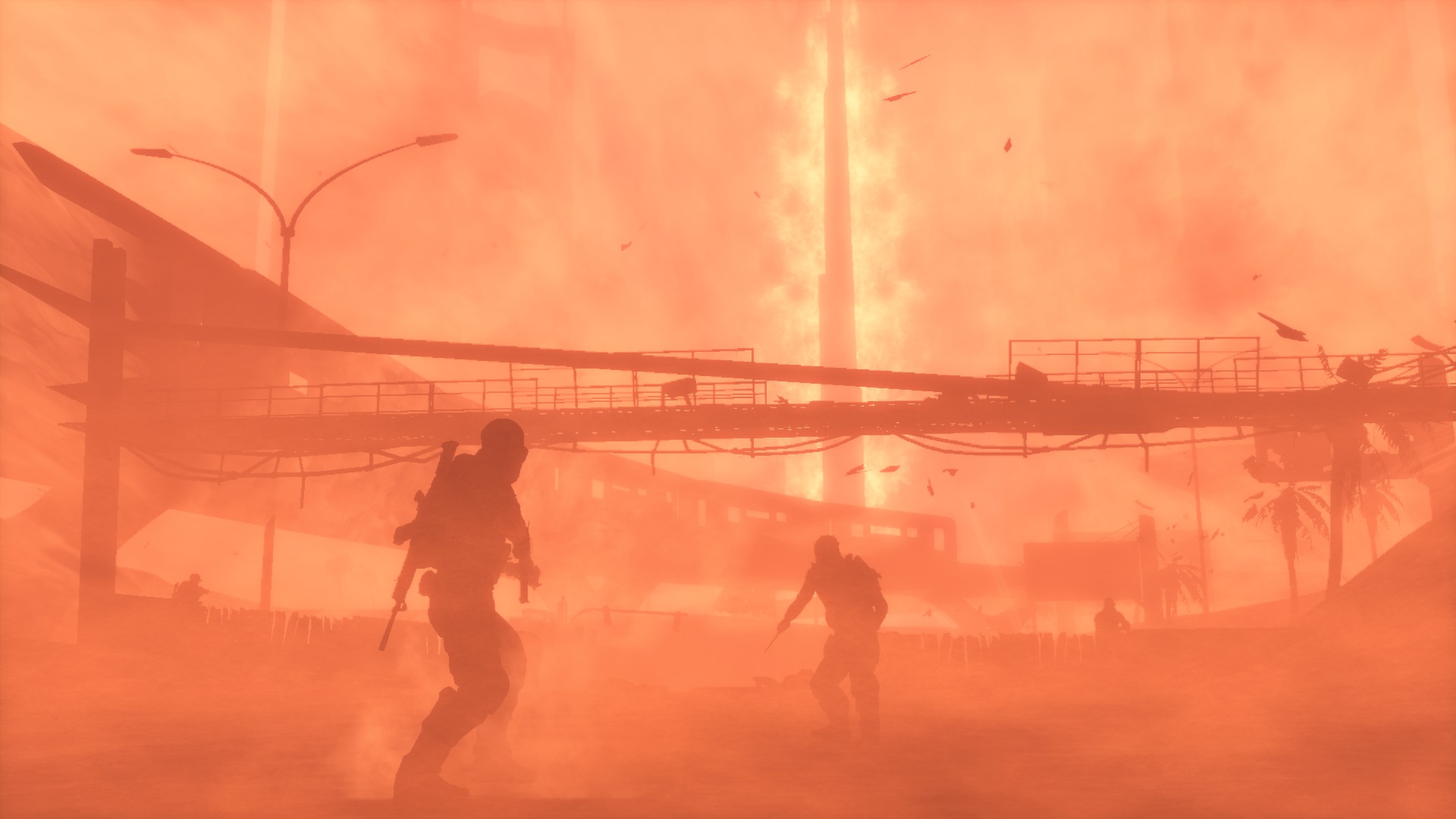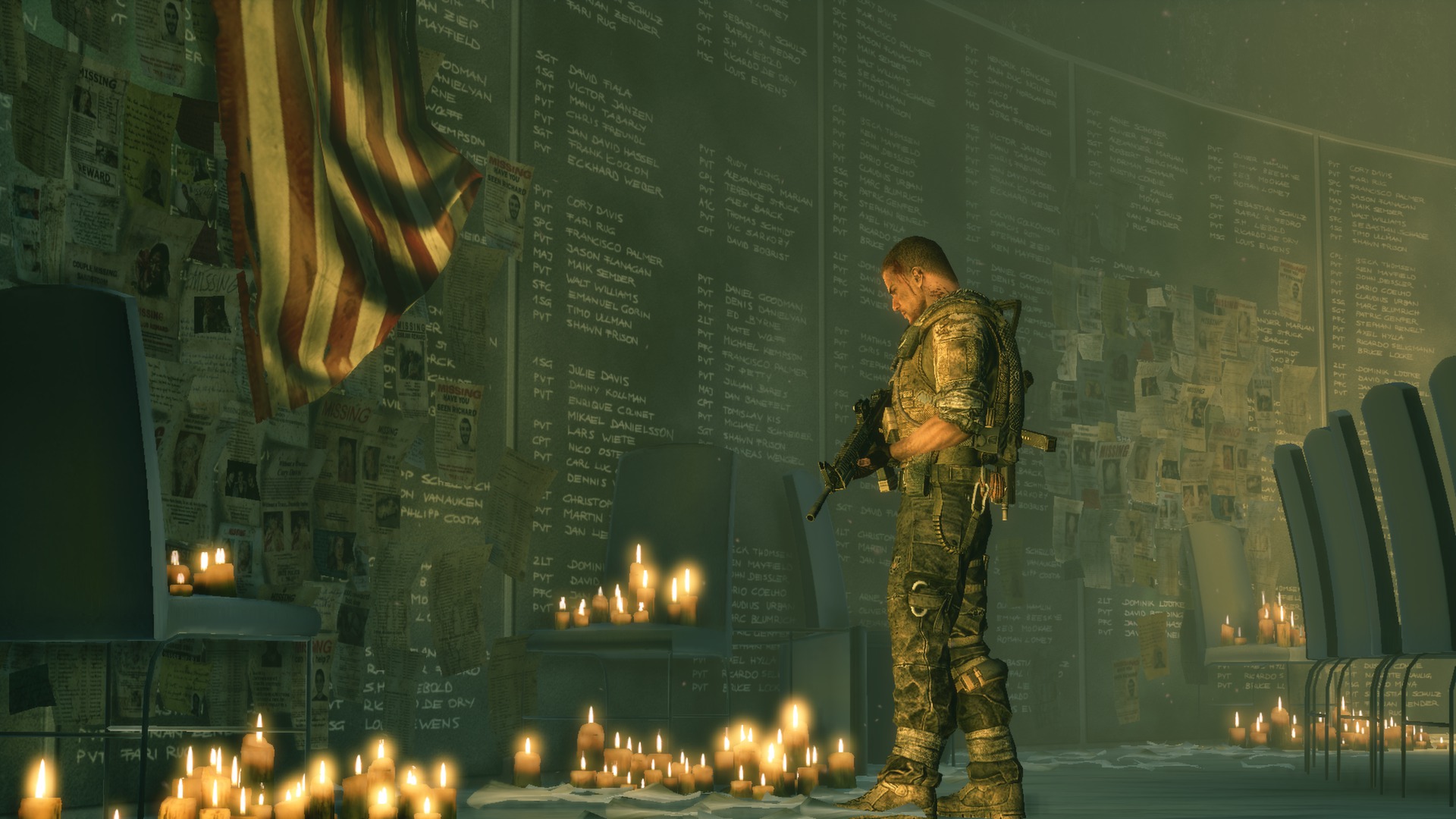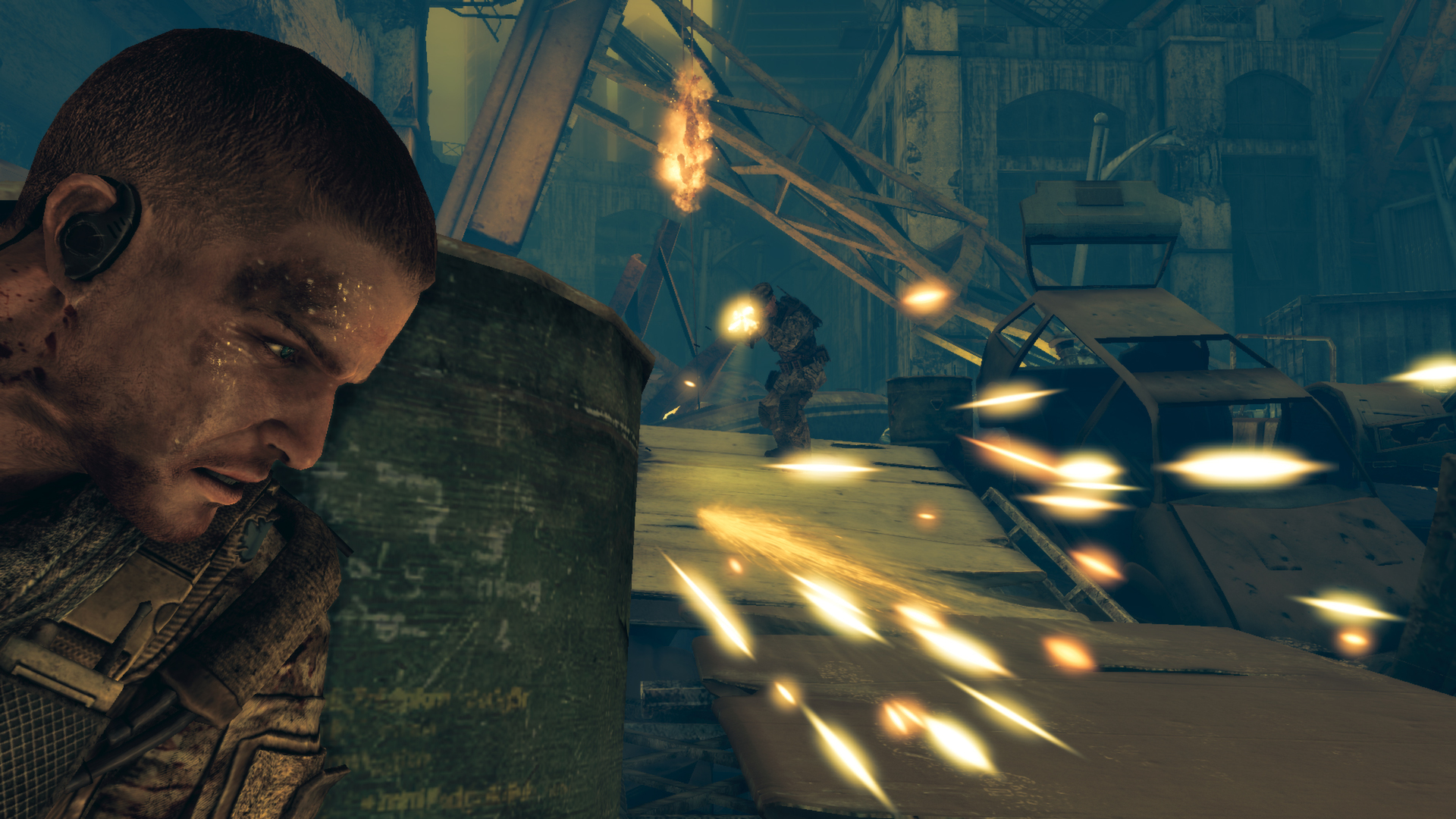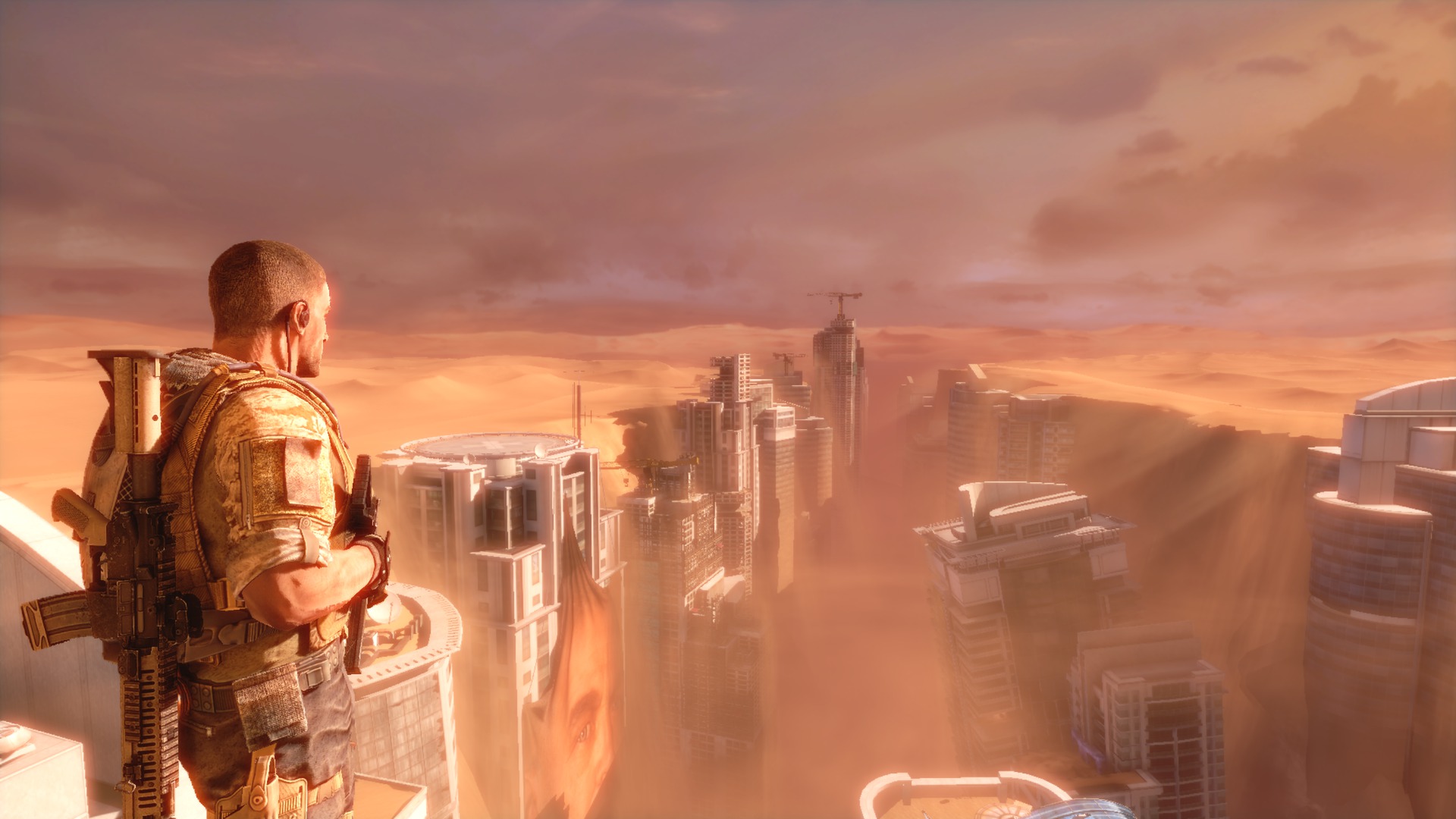SPOILERS ARE IN THIS REVIEW
In a time where military shooters are a big norm in gaming, we often blur them into one. It’s not very often – in fact very rarely – a game that focuses on military action grants its player a chance of observing some organic, interesting, themes or subject matters relating to war. There are a couple of recent exceptions in gaming such as COD: Black Ops 3 and Battlefield 4. But these weren’t the first to observe what impact war has on human beings and the aftermath it leaves mentally. One game dared to be brave, to show the true colours of war. That game is Spec Ops: The Line.

You may have not bothered with Spec Ops: The Line for a number of reasons and believe me I understand. Going by the trailers, it looks like a generic 3rd person shooter that offers little dynamics or new ideas in a military shooter. If you look at it face value, it appears to be nothing that special. But in terms of themes and subject matter, it’s incredibly interesting. The game presented solid game play components and yet nothing that would change gaming. The action was standard for the genre that infused big set pieces, stealth sections and glorious turret sections.
So the gameplay is solid but nothing would amaze anyone who has played Gears of War or Call of Duty. But one point of interest lies in the narrative which is oozing with gravitas.
Spec Ops: the Line takes players into the role of Martin Walker, a marine who’s been sent into Dubai after a catastrophe has riddled the city into a hollow shell and those who remain there are fighting for survival. Walker is tasked to find a rogue captain and his squad who stayed in Dubai after a major sandstorm. Walker and his two gun buddies (a smart talking geek and the cautious and often panicky best friend) are sent in and from the get go, things look dire. Bodies have been hung to show as warnings, the men they are looking for have organized a new army to defend the city, and they are wiping out civilians along with other unspeakable evils.

Martin Walker and his squad go through hell and Walker soon discovers a disturbing truth. Throughout the game, he has been talking to the man he is hunting. Befriended in order to get close and in exchange for getting close, Walker must execute orders from the rogue captain; Orders that include bombing a shanty town filled with civilians.
Yeah, it’s harsh stuff. But the worst is at the end, when Walker discovers the man he is hunting, is dead. The voice commanding him was his own, and the effects were caused by PTSD (post-traumatic stress disorder). Spec Ops doesn’t beat around the bush and delivers some harsh and brutal subject matter that may upset some. The end results in the player deciding whether Walker dies, lives a life of shame in captivity or becomes like the rogue captain he was sent after in the first place.
Spec Ops delivers on its graphic violence and disturbing themes full on. It’s similar to that of Hotline Miami, and they interestingly both share a common factor.

What makes Spec Ops: The Line and Hotline: Miami powerful is how the themes interlink with the gameplay. For one major set piece, we see the player bombarding a small shanty town with a nasty substance known as white phosphorus which when it makes contact with organic material (i.e. human skin), burns and essentially melts the material. So once you’ve covered this area with the white phosphorus believing to be taking out enemy troops, you soon discover when walking through after the dust has settled that a larger number of women and children have been burned to death.
The game forces players to see the results of their actions and knowing full well on what you have done makes it unpleasant and difficult to replace. It’s an anti-war game in the harshest sense and one that flawlessly evokes an overwhelming sense of guilt not just for Walker but the player. It’s best described as a moral choice game that’s very grey. There is no easy answer and unlike many RPG’s such as Mass Effect or Fable, which make it very easy most of the time to decipher good and bad. Spec Ops has its choices, and in the end, someone has to pay a price.
The clear message here is that troops overseas don’t have it easy, no matter what they’re doing or where they are. Everyone makes choices they regret and Walker is a clear symbolism of that difficulty troops have and his mental illness a result of many choices he had to make. Walker takes no pride in his choice but does so to live and feeling such guilt, his mind has created the man he is hunting. Hearing his voice telling him to carry out such ruthless tasks makes him feel a little bit easier about himself.

If you are a Call of Duty player, imagine the mission “Death from Above” in Call of Duty Modern Warfare, where players take the role of a gunner in an AC-130 air craft. Instead of seeing the distance between you and the NPCs you were thrown into the centre of the battlefield aftermath, to see the immense destruction you’ve just caused. Spec Ops: The Line made you confront those actions and things became rather difficult when you saw the devastating end result.
Grim…
But not all is bad; the game itself is rather enjoyable when not making you feel awful. It has some great set pieces involving the sandy environments, a good mixture of action and a great soundtrack with some fantastic moments where the Black Angels play in the backdrop. It’s heavy stuff indeed, but it’s a game worth checking out just for the emotional factor. It’s proof that games can be tools for evoking emotion in the player.
Is Spec Ops a classic? Indeed. This is certainly not a game everyone will like or enjoy; it’s tough to sit through at times and by the end, you’re feeling a little shitty about yourself. Even the choices at the end reflect what happens to those suffering from PTSD. They’re either catered off to live a life of regret back home, go off into the unknown to find forgiveness or sadly not continue their life. Spec Ops is powerful and will be remarked as one of the best games that connects both player and game on an emotional aspect due to its depiction of violence in gaming and its themes of anti-war.


























































